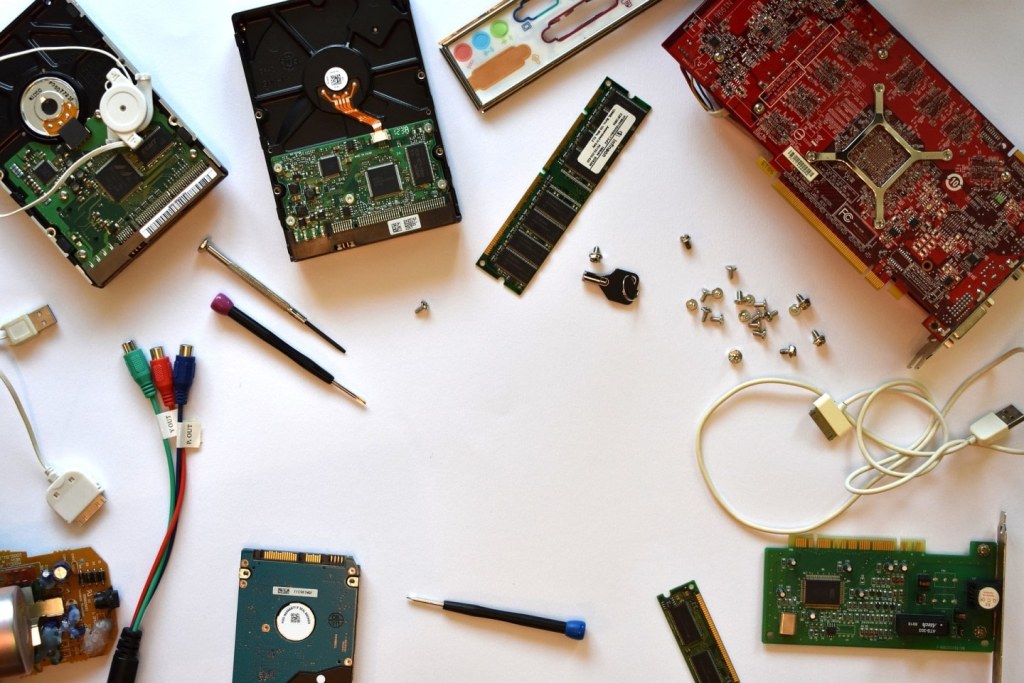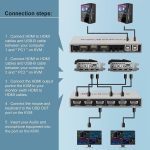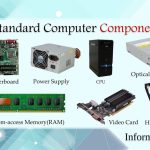Troubleshooting Computer Hardware Issues: Unlocking Your Device’s Full Potential!
Computer Hardware Issues: Troubleshooting Your Tech
Introduction
Hello Readers,
1 Picture Gallery: Troubleshooting Computer Hardware Issues: Unlocking Your Device’s Full Potential!

Welcome to our comprehensive guide on computer hardware issues. In this article, we will explore common problems that users encounter with their computer hardware and provide valuable solutions to overcome these challenges. Whether you are a tech enthusiast or a casual computer user, this article aims to equip you with the knowledge to troubleshoot and resolve hardware-related issues effectively.

Image Source: safemode.com.au
Let’s dive in and tackle these computer hardware issues head-on!
What are Computer Hardware Issues? 🖥️
Computer hardware issues encompass a wide range of problems that can occur with the physical components of a computer system. This includes issues with the central processing unit (CPU), memory modules, graphics card, hard drive, power supply, and more. When faced with hardware issues, users may experience various symptoms such as system crashes, slow performance, unexpected errors, or even complete hardware failure.
It is essential to identify and address these issues promptly to ensure the optimal functioning of your computer.
Who is Affected by Computer Hardware Issues? 🧑💻
Computer hardware issues can impact anyone who uses a computer, from individuals at home to professionals in various industries. Whether you rely on your computer for work, study, entertainment, or communication, encountering hardware problems can disrupt your productivity and cause frustration.
Fortunately, by understanding the common hardware issues and their solutions, users can minimize the impact of these problems and get their computers back up and running smoothly.
When Do Computer Hardware Issues Occur? ⏰
Computer hardware issues can occur at any time during your computer’s lifespan. They can arise from regular wear and tear, outdated components, improper handling, or even software conflicts. In some cases, hardware issues can manifest immediately after assembling a new computer or installing new hardware components. Others may develop over time as your computer ages.
It is crucial to address hardware issues promptly to prevent further damage and ensure the longevity of your computer.
Where Do Computer Hardware Issues Happen? 📍
Computer hardware issues can happen anywhere you use your computer. Whether you work from home, in an office, or on the go, your hardware components are susceptible to problems. These issues can occur in desktop computers, laptops, servers, or even gaming consoles.
Remember, hardware issues can arise both internally within the computer’s components and externally through peripheral devices such as printers, scanners, or external storage devices.
Why Do Computer Hardware Issues Occur? ❓
Computer hardware issues can arise due to various factors. Some common causes include:
Overheating: Insufficient cooling or excessive dust accumulation can cause hardware components to overheat, leading to performance problems or failure.
Power Surges: Sudden spikes in electrical power can damage hardware components, particularly if they are not protected by surge protectors.
Incompatibility: Using incompatible hardware components or outdated drivers can result in conflicts and malfunctioning.
Physical Damage: Accidental drops, impacts, or mishandling of computer equipment can cause hardware damage.
Software Conflicts: Certain software applications or drivers can conflict with hardware components, causing system instability.
Understanding the reasons behind hardware issues can help users prevent them and maintain their computer’s performance.
How to Resolve Computer Hardware Issues? 🛠️
Resolving computer hardware issues requires a systematic approach. Here are some steps you can follow:
Identify the Problem: Observe the symptoms and gather information to pinpoint the hardware component causing the issue.
Research and Troubleshoot: Utilize online resources, forums, and software diagnostic tools to troubleshoot and identify potential solutions for the specific hardware problem.
Hardware Replacement: If a hardware component is irreparably damaged or outdated, consider replacing it with a compatible and high-quality replacement.
Ensure Proper Ventilation: Regularly clean and maintain your computer’s cooling system to prevent overheating issues.
Stay Updated: Keep your hardware drivers, firmware, and operating system up to date to minimize compatibility issues.
Seek Professional Help: If you are unsure or uncomfortable with troubleshooting hardware issues, consult a professional computer technician for assistance.
Advantages and Disadvantages of Computer Hardware Issues
Advantages:
Opportunity to upgrade components and improve overall system performance.
Increased knowledge and understanding of computer hardware.
Enhanced troubleshooting skills for future hardware issues.
Disadvantages:
Potential loss of productivity and data due to hardware failures.
Inconvenience and additional costs associated with hardware replacements.
The complexity of troubleshooting hardware issues may require technical expertise.
Frequently Asked Questions (FAQs)
Q: Can I prevent hardware issues in my computer?
A: While it is impossible to entirely prevent hardware issues, regular maintenance, proper handling, and keeping your system up to date can significantly reduce the likelihood of encountering problems.
Q: How do I know if a hardware component is failing?
A: Common signs of failing hardware include system crashes, blue screens of death, frequent error messages, unusual noises, and slow performance.
Q: Is it better to repair or replace a faulty hardware component?
A: It depends on the severity of the damage, the cost of repair versus replacement, and the age of the component. In some cases, it may be more cost-effective to replace the hardware.
Q: Can software issues mimic hardware problems?
A: Yes, certain software issues, such as driver conflicts or malware infections, can manifest as hardware-related symptoms. It is essential to rule out software problems before assuming a hardware issue.
Q: Can I upgrade my computer’s hardware components?
A: Yes, upgrading hardware components like RAM, storage, or the graphics card can improve your computer’s performance without the need for a complete system replacement.
Conclusion
In conclusion, computer hardware issues can be frustrating, but with the right knowledge and troubleshooting steps, you can overcome them. By understanding the causes, symptoms, and solutions to these problems, you can maintain your computer’s performance, prolong its lifespan, and minimize disruptions to your work or leisure activities.
Remember, don’t hesitate to seek professional help if you are unsure or uncomfortable with resolving hardware issues yourself. Now go forth and conquer your computer hardware problems!
Final Remarks
Friends, we hope this comprehensive guide on computer hardware issues has been helpful in equipping you with the necessary knowledge to troubleshoot and resolve problems that may arise. It is important to note that every computer system is unique, and some issues may require specific solutions beyond the scope of this article.
If you are unsure or encounter persistent hardware problems, we highly recommend consulting a qualified computer technician to ensure an accurate diagnosis and resolution.
Thank you for reading, and we wish you all the best in your computer hardware troubleshooting endeavors!
This post topic: Electronics


